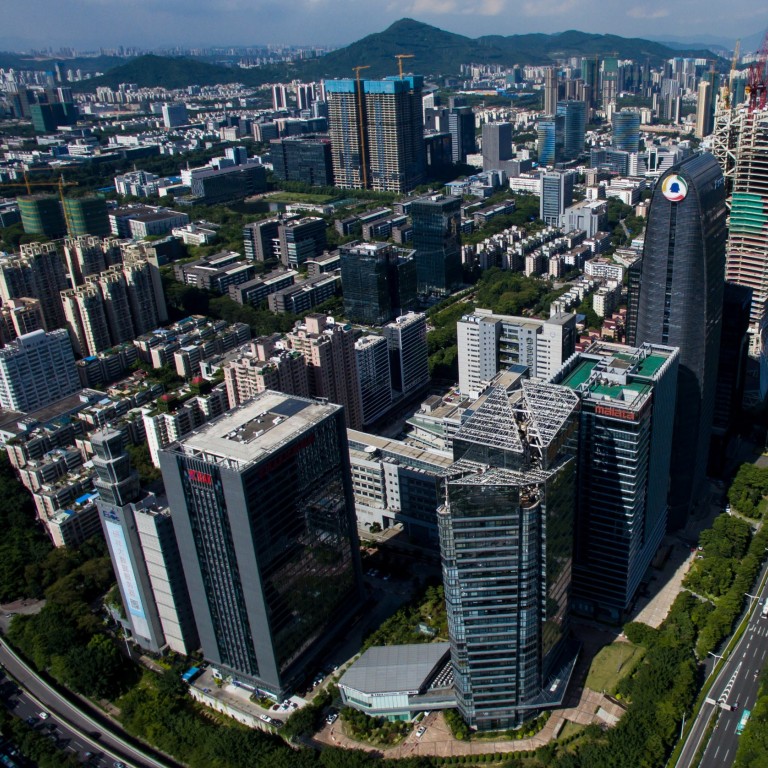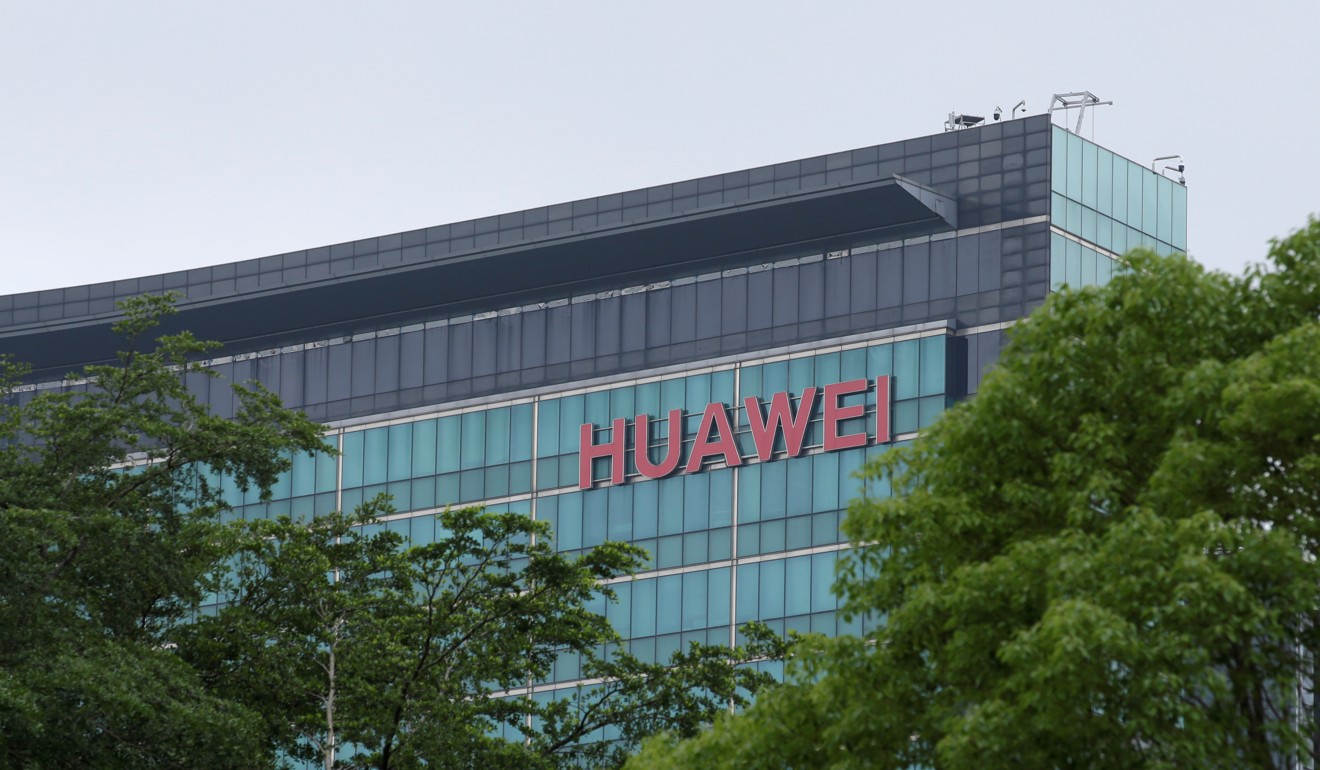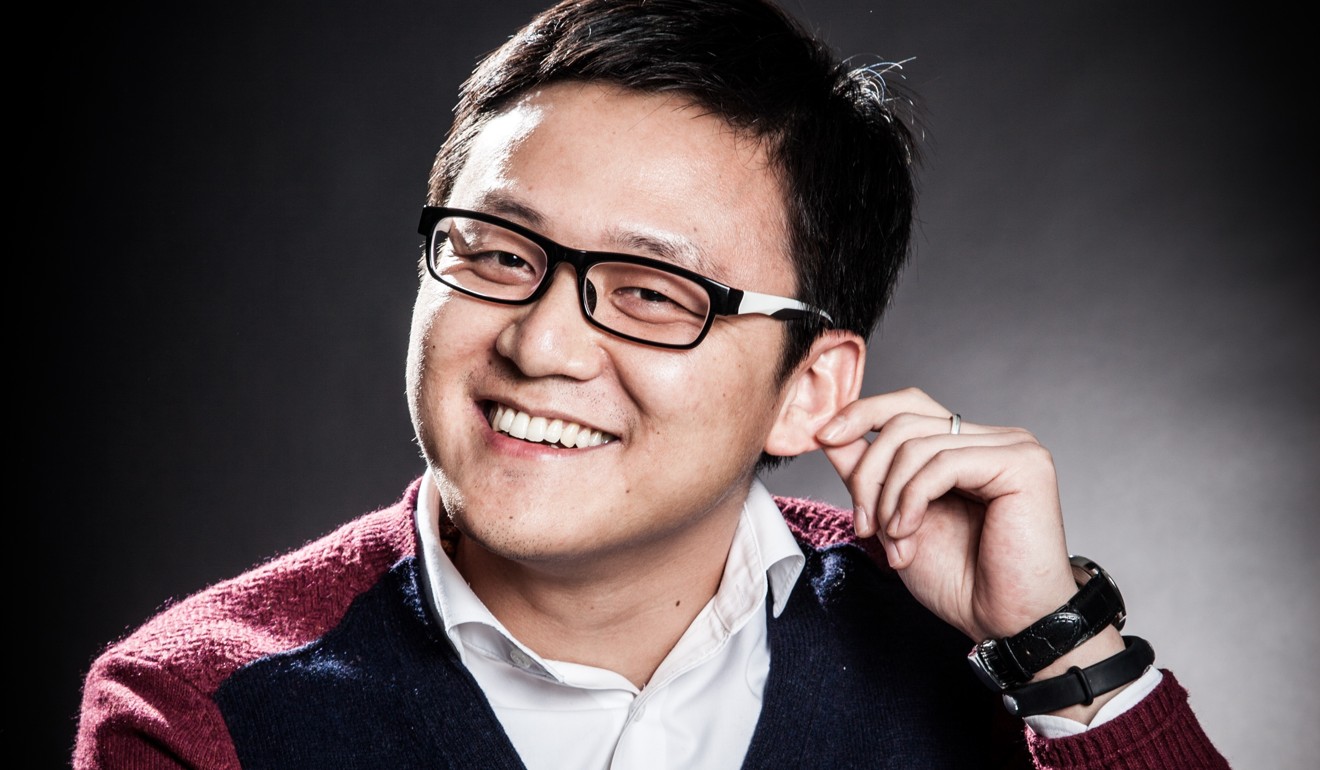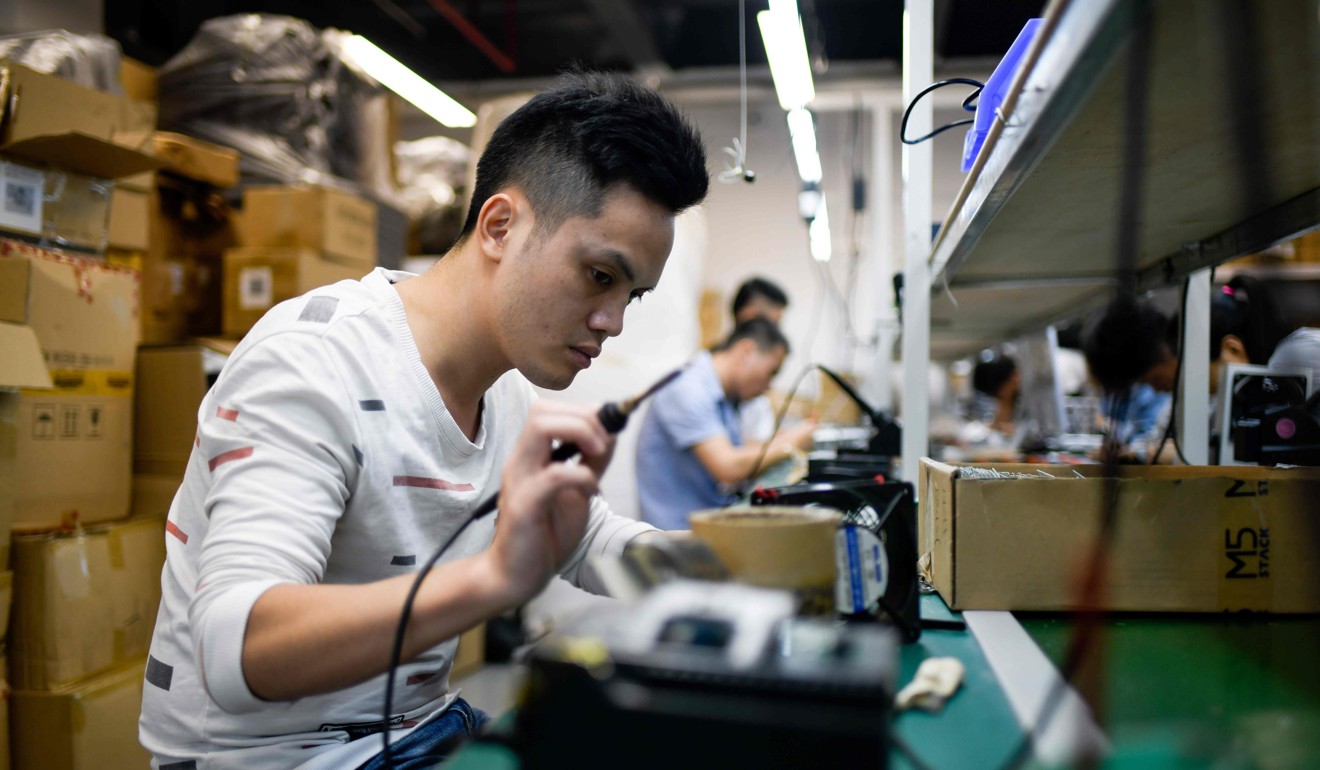
Greater Bay Area entrepreneurs fear fallout on their businesses after US tech sanctions hit Huawei’s operations
- Chinese start-ups look for domestic alternatives as they prepare for life without access to hi-tech suppliers should the US-China trade war escalate
- Rising barriers in tech transfers will slow down the emergence of the Greater Bay Area, but cannot stop it, say analysts and industry insiders
It’s business as usual for Zhou Kang.
The Shenzhen-based entrepreneur’s company, Czur Tech, is a niche maker of portable digital scanners that requires components from more than 200 suppliers. He sources most of them locally, except for a few key chips and sensor, which he imports from Japan. And so far this year his company has exported more than 10,000 scanners to the US priced between US$299 and US$3,000 that can convert a 300-page book into a digital format within minutes.
Although the products made by his company have not been included in the tariffs in the US-China trade war, it is causing him anxiety.
Zhou is worried that Czur could be caught in the crossfire if the trade war escalates further.

Entrepreneurs like Zhou are bracing for a broader fallout, fearing tightened control on tech exports by foreign governments from the tech sanctions and are looking for home-grown alternatives.
“We have to think about plan B. Although we are not on any watch list or blacklist for now, we need to prepare for foreign countries cutting off chip supplies,” Zhou said.

His R&D team is experimenting with locally made chips and sensors. He said that the performance of the chips is weak and needs two sensors to replace the one from Japan, resulting in a product that is not bigger and heavier, but it also costs more.
Such difficulties are felt by his fellow Greater Bay Area entrepreneurs.
Guangdong to keep opening up economy to counter impact of trade war
The Greater Bay Area, which combines Shenzhen and eight other cities from Guangdong province, with Hong Kong and Macau, has become a cradle for Chinese tech start-ups. Heavyweights like Tencent Holdings, Huawei and DJI, the world’s largest drone maker, have emerged from here.
Earlier this year, Chinese leaders okayed a blueprint to make the Greater Bay Area into a global tech and economic hub rivalling the San Francisco Bay Area.
Currently, there are 40,000 start-ups in the area, covering areas such as new energy vehicles, robotics, biotech, and artificial intelligence, the official Southern Daily newspaper reported in late May.
Experts fears that the emergence of the Greater Bay Area as a dominant tech hub may be under threat as the US cuts of the supply of American scientific know-how to Chinese firms.
Foxconn denies rumours it will exit China amid trade war uncertainties
The tech industry will face “the most determined delink” initiated by the US, although Washington will not want a complete cut off in trading with China for common goods, said Ba Shusong, chief China economist of Hong Kong stock exchange.

Cao Zhongxiong, a research fellow with Shenzhen-based China Development Institute, said that for many years Chinese companies have got used to an ecosystem where US sits upstream with its core technology know-how, with China responsible for downstream activities like manufacturing and application.
“But this is not a one-way flow. China does not only offer low-cost manufacturing [but is a] huge market and [its] tech savvy consumers are [giving] feedback with indispensable data and information, which is key to technology upgrading by US companies,” said Cao, adding that an abrupt delink will definitely cause short-term pain for both sides.
The idea of creating a cross-border economic hub is to mobilise everything in the region including technology, capital and manufacturing, to maximise synergy, said Wilson Chow, global leader for telecom, media and technology industries at PwC.
“China has been keen on developing its own capabilities and alternative resources. If it could achieve free flow of capital and logistics in the region, it will lay the platform for innovation and help to nurture tech firms into unicorns,” he said.
China exempts chip makers from tax as trade war stretches to tech
But does China have the capability to innovate if there is no access to overseas technology? Many domestic analysts cited China’s first nuclear weapons test in 1964 as an example of the country’s self-innovation capability.
But Cao said that it was a totally different issue.
“Research and development in the civilian sector is totally different from the military sector. You have to see if your products make economic sense. Luckily China has a comprehensive industry structure and a huge market, so that cost can be largely covered by domestic consumption,” he said.
We have to think about plan B. Although we are not on any watch list or blacklist for now, we need to prepare for foreign countries cutting off chip supplies
Still, many industry insiders believe a thorough decoupling between the US and China, even if pushed firmly by Washington, will take place gradually as the two economies rely heavily on each other.
Samson Tam, a former Hong Kong legislator and chairman of Hong Kong Business Angel Network, said that even if the tech war is prolonged and escalated, it will only slow down the emergence of the Greater Bay Area but cannot kill it.
Although Zhou is cautiously optimistic about his company’s prospects in the current economic climate, he does not doubt the Greater Bay Area’s potential.
“It is easy to find things you need, people move fast … It is heaven for people like me who want to create something new and make life easier,” he said.

